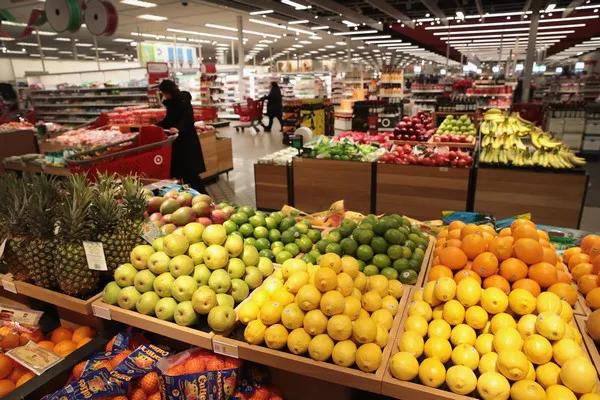Food and beverage industry giants are proactively reshaping their operations to confront the growing challenges posed by climate change. Notable brands like Chipotle, Dunkin’, and Jim Beam are grappling with hurdles ranging from ingredient sourcing uncertainties to soaring energy prices.
A surge in extreme weather events such as droughts, wildfires, floods, and unprecedented temperatures has significantly elevated operational costs. These costs encompass everything from heightened commodity prices to infrastructure damage and the strain on HVAC systems due to evolving weather conditions, according to a report by Yahoo Finance.
Chipotle, renowned for its commitment to fresh ingredients, has recognized the mounting uncertainty surrounding crop availability. To address this, the company is prioritizing the establishment of regionally diversified, long-term supplier relationships, as outlined by CFO Jack Hartung. Additionally, Chipotle is contending with increased electricity costs stemming from extreme heat, which places added strain on cooling systems in its restaurants.
“We’re seeing our utility costs up,” explained Hartung. “And also, when you have this kind of heat and you’re putting this much pressure on your HVAC, you have breakdowns as well.”
J.M. Smucker, the parent company of household names like Folgers, Dunkin’, and Café Bustelo, is taking proactive steps to address the impact of climate change on its coffee production operations. Mark Smucker, the company’s president and CEO, acknowledges that climate change will necessitate adaptations. The company has initiated its sustainability objectives and is investing in the search for coffee varieties resilient enough to withstand climate-related challenges.
Adam Smith, a climatologist at the U.S. National Oceanic and Atmospheric Administration (NOAA), emphasizes the need for executives in large food companies to take into account the evolving climate patterns. He notes, “if they’re wise, they’re looking at how we’re having wetter wet events, drier dry events.” The amplification of the hydrologic cycle translates to increased volatility in the baseline expectations of commodity supplies.
Beverage producers, too, confront unique concerns. Beam Suntory, known for brands like Jim Beam, Maker’s Mark, and Suntory, relies heavily on access to high-quality water. Climate impacts, such as droughts in the southwestern United States, have rendered certain regions unsuitable for production.
Consumers are not immune to the consequences of climate change’s impact on food systems, as specific ingredients may become scarce. A recent report reveals that in the United Kingdom, over one-fifth of popular grocery items are vulnerable to climate-induced disruptions, as reported by The Guardian.
The UK, as an island nation, heavily relies on food imports. This year, consumers have already experienced supply disruptions for items like tomatoes, cucumbers, lettuce, peppers, and citrus fruits, primarily due to droughts in Spain and Morocco. A study by Christian Aid titled “Cooking up a storm: The climate threat to food supply chains in the UK, Germany & Italy” underscores the high climate vulnerability faced by eight countries among the 25 biggest food exporters to the UK. This heightened vulnerability could lead to shortages of items such as bananas, grapes, avocados, cashews, cocoa, peas, canned tuna, and tea for UK consumers.
“The UK may be an island but in an ever more interconnected world, we cannot escape the damage caused by climate change,” remarked Patrick Watt, CEO of Christian Aid. He pointed out that farmers in some of the world’s most impoverished nations are grappling with the effects of droughts, storms, and rising temperatures, with the UK’s carbon emissions record contributing to the climate crisis.

